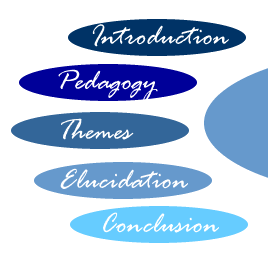Wendy Bishop specializes in composition and rhetoric and in creative writing (poetry and nonfiction). She is the author and editor of a number of books, essays, and articles on composition and creative writing pedagogy and writing research, including Ethnographic Writing Research: Writing It Down, Writing It Up, and Reading It (1999), editor of The Subject Is Reading: Essays by Teachers and Students (2000), The Subject Is Writing: Essays by Teachers and Students, Second Edition (1999), Elements of Alternate Style: Essays on Writing and Revision (1997), and coeditor, with Hans Ostrom, of Genre and Writing: Issues, Arguments, Alternatives (1997). Bishop holds a Ph.D. in English/Rhetoric from Indiana University of Pennsylvania. In addition to writing articles on ethnographic research, gender and composition studies, creative writing and teacher training for The Writing Instructor, AWP Chronicle, and The Journal of Advanced Composition, she has also published poems and stories in The American Poetry Review, The Yale Review, Western Humanities Review, Cream City Review and many other journals. She has published several chapbooks of poetry, Time in the Southwest, Mid-Passage, and My 47 Lives.
But primarily, if you ask Dr. Bishop what or who she is and what she does--she is a teacher--she teaches. She won a University Teaching Award in 1993, a University Developing Scholar Award in 1994, and a Teaching Incentive Program Award in 1996. She is a teacher who enjoys discussing her classes--what her students are doing, but also what she is learning. After I heard her keynote at the International Writing Centers Association Conference in Savannah, GA, in April of 2002, I knew I must meet and interview Wendy Bishop for KAIROS. Her "furnace-like glow" comes from joy in lifelong learning but also from promoting that goal in students. As she stated at IWCA, teachers aim to nurture student writers, "to encourage them to care about writing-lifelong." She continues: "When writing instruction works, craft sets the stage for art in a similar way: students are prepared to write to the best of their abilities." Also, she is a Writing Center person, as I am, and she speaks of collaborative learning in her classrooms as a "Writing Center state of mind." Our email interview sprang from the themes in her speech; the e-conversations follow:
SB:
Forgive my impertinence
at this "cold call/email." I am a new Interviews editor for
Kairos and we met in Savannah at IWCA. I wondered if I could interview
you for our fall issue. I would also try to make a technology connection,
so I thought, if you consent, you could be thinking about your scholarship
and teaching and how your work intersects with technology. I thought that
maybe we could have a "conversation by email" interview, and
while we may start with the ideas from your speech that fascinated me
and others, we may "diverge," also (sorry for the pun on your
speech). Anyway, I think you could just work from the questions I send
along, or the comments I make about your talk.
WB:
Not impertinent in the least! It's the new way of being. I'd be glad to
talk. My only reservation is that I'm not terribly strongly connected
to technology and am only getting up to speed on teaching partially on-line
with Blackboard given Charlie Lowe's help--he's working on KAIROS and
is my grad student, though I'm running along after him and his energy.
I'm looking forward to the conference (and my weekend is devoted to drafting,
in fact). Everyone has been so enthusiastic and helpful it can't help
but be a success.
Top
